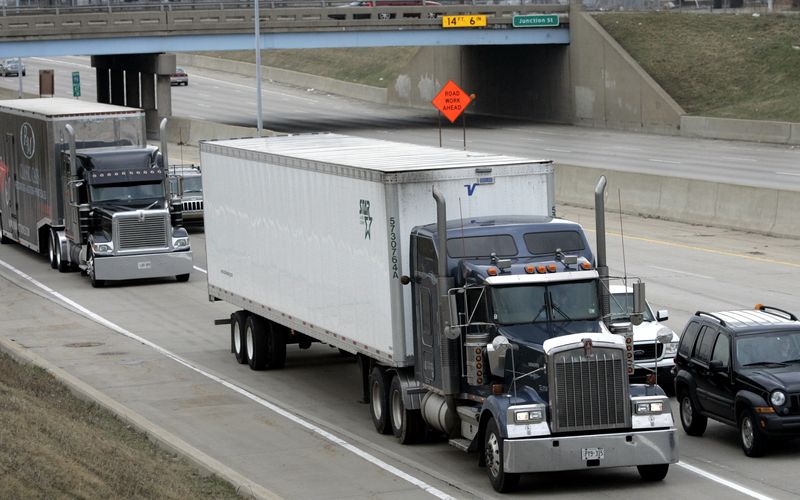By Abhijith Ganapavaram, Priyamvada C and Juby Babu
(Reuters) -Some 30,000 workers at Yellow Corp were looking for jobs on Monday after the major trucking company filed for Chapter 11 bankruptcy protection, potentially saddling U.S. taxpayers with losses from a government rescue of the long-troubled carrier.
The nearly 100-year-old company, which halted operations on July 30, has been a dominant player in the "less-than-truckload" segment that hauls cargo for multiple customers on a single truck.
It laid blame for the bankruptcy, likely the largest ever for a U.S. trucking firm, at the feet of the International Brotherhood of Teamsters union that represents about 22,000 of its employees.
Teamsters leadership "was able to halt our business plan, literally driving our company out of business," Yellow CEO Darren Hawkins (NASDAQ:HWKN) said in a statement late Sunday.
The International Brotherhood of Teamsters blamed Yellow executives for the company's demise.
"Yellow's dysfunctional, greedy C-suite failed to take responsibility for squandering all that cash. They still don't," said Teamsters General President Sean O'Brien. "They shamelessly pin their corporate incompetence on working people."
Financial analysts traced the company's persistent financial woes to acquisition-related debt, the high cost of operating disparate companies and low shipping rates that depressed revenue.
Prior to its filing, Yellow held roughly 8% to 10% of market share, according to brokerage TD Cowen. Its customers included large retailers such as Walmart (NYSE:WMT) and Home Depot (NYSE:HD), manufacturers and Uber (NYSE:UBER) Freight.
In its Chapter 11 filing, Yellow estimated total assets of $2.15 billion and total debt of $2.59 billion.
Yellow executives said they intend to fully repay a $700 million loan former President Donald Trump's administration issued to bail out the firm in 2020 under a pandemic relief program. Their success will depend on proceeds from selling Yellow's properties and roughly 12,000 trucks, according to bankruptcy experts.
Government officials earlier this summer warned that U.S. investments could face losses. In particular, the Treasury Department has a nearly 31% stake in Yellow after accepting 15.9 million company shares as additional security for the loan, according to audit reports and bankruptcy documents. Shareholders are often last to recover their investments.
Yellow shares skidded 40% to touch a session low of $2.13 on Monday. They soared fivefold last week following a surge in retail investors' interest.
It has $1.3 billion in debt payments coming due in 2024, including a roughly $500 million private-equity term loan in June and the $700 million U.S. loan in September.
Apollo Global Management (NYSE:APO) has a big chunk of Yellow's term loan. It arranged debtor-in-possession financing that will keep Yellow afloat during the restructuring and move it to the front of the line for repayment.
Yellow also has a roughly $450 million secured revolving loan from a syndicate of banks arranged by Citizens Bank, Merrill Lynch and others that expires in January 2024.
"This leaves the taxpayer the last creditor to get repaid," said the authors of a congressional report in June.

Yellow recently averted a strike by 22,000 Teamsters-represented workers by agreeing to pay more than $50 million it owed in worker benefits and pension accruals. The company's business evaporated in the days leading up to that deal, according to court documents.
Meanwhile, Yellow employees on Monday filed two lawsuits accusing the company of failing to give the required 60 days notice before firing them.
